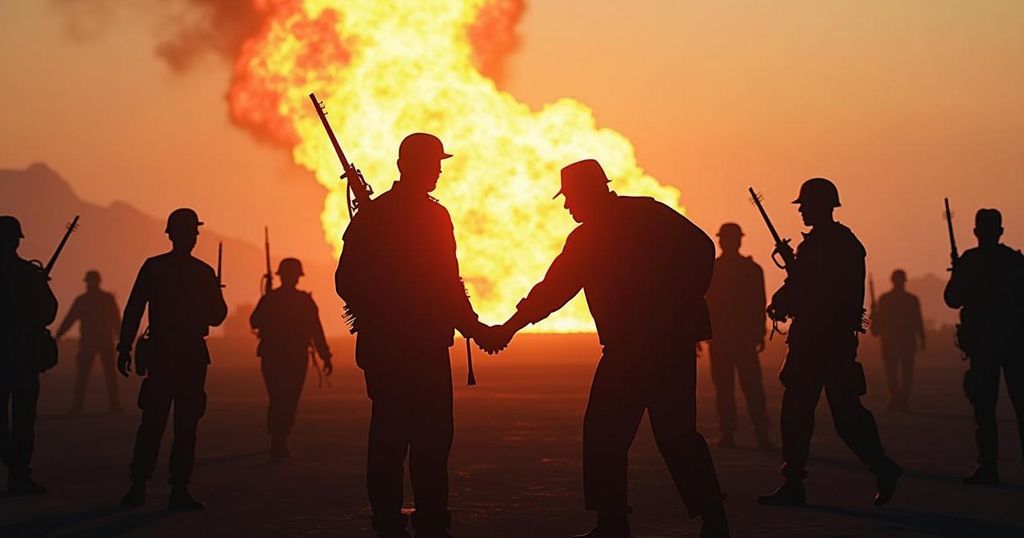Indonesian President Decries Assassination of Hamas Leader as Unacceptable Violence

Indonesian President Joko Widodo condemned the assassination of Hamas leader Ismail Haniyeh as an “act of violence and murder,” occurring within Iran’s territory. The incident follows an Israeli airstrike, and while Israel has not confirmed involvement, implications of such have been suggested. Japan has called for de-escalation of tensions amidst the ongoing humanitarian crisis in Gaza, where civilian casualties are alarmingly rising.
Indonesian President Joko Widodo, widely known as Jokowi, has vehemently denounced the assassination of Hamas leader Ismail Haniyeh, describing it as an “act of violence and murder.” This statement was made during a press briefing on Thursday, emphasizing that the act was intolerable and occurred within the sovereign territory of Iran. The announcement of Haniyeh’s assassination came from both Hamas and Iranian officials, stating that he was killed in an Israeli airstrike aimed at his residence in Tehran, which took place shortly after he participated in the inauguration of Iranian President Masoud Pezeshkian. Although Israeli authorities have refrained from publicly acknowledging their involvement in Haniyeh’s death, hints of Israeli responsibility have been suggested by Prime Minister Benjamin Netanyahu’s statements. President Widodo further stated that Indonesia and the international community collectively condemn such violent actions occurring in another nation’s territory. In a related development, Japan’s government has urged for a cessation of escalating tensions in the Middle East following the incident. Chief Cabinet Secretary Yoshimasa Hayashi emphasized the importance of avoiding retaliatory attacks and efforts to de-escalate the situation, while confirming that Japan is in the process of verifying the facts regarding Haniyeh’s assassination. This incident occurs amidst the ongoing turmoil in Gaza, where international condemnation has been directed at Israel for its military offensive that has resulted in significant civilian casualties since the conflict intensified on October 7, 2023. Reports indicate that at least 39,445 Palestinians have been killed, predominantly women and children, and over 91,000 injured due to the violence, prompting accusations of genocide against Israel at the International Court of Justice. The court has mandated Israel to halt its military operations in the beleaguered city of Rafah, which has faced overwhelming humanitarian challenges.
The recent assassination of Ismail Haniyeh has drawn widespread condemnation from global leaders, highlighting the complex geopolitical tensions in the Middle East. Haniyeh, a prominent figure in Hamas, was killed in an Israeli airstrike in Tehran, raising critical questions about state sovereignty and international law regarding acts of aggression by one nation within the borders of another. The incident is part of the larger, ongoing conflict between Israel and Palestinian factions, exacerbated by Israel’s military actions and a humanitarian crisis in Gaza. Furthermore, Japan’s call for de-escalation reflects a broader concern among nations regarding stability in the region amidst increasing violence.
In summary, the assassination of Hamas leader Ismail Haniyeh has sparked significant international outrage, particularly from Indonesian President Joko Widodo, who strongly condemned the act as unacceptable violence within Iran’s territory. Meanwhile, Japan’s government is advocating for de-escalation in the Middle East, marking a critical period of international diplomacy in response to the escalating conflict. The situation remains dire as the humanitarian crisis in Gaza continues unabated, demanding urgent global attention and intervention.
Original Source: www.aa.com.tr








